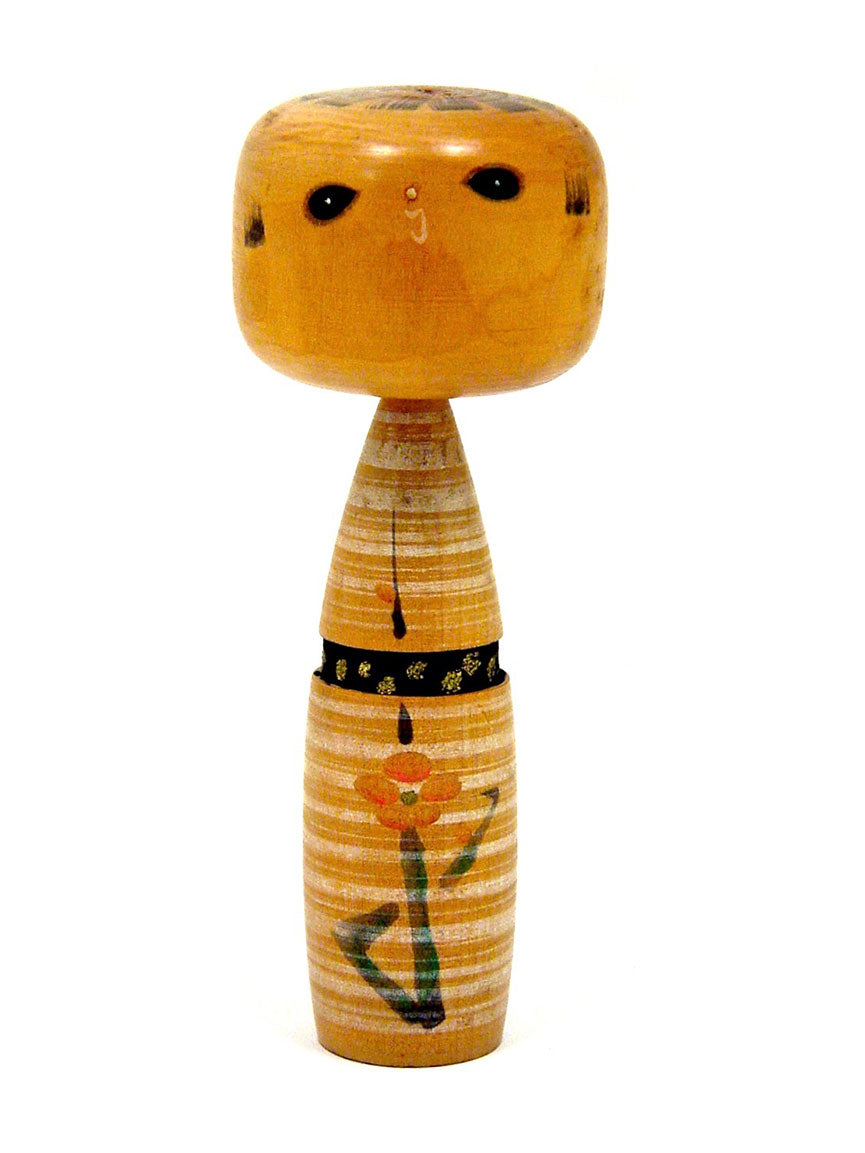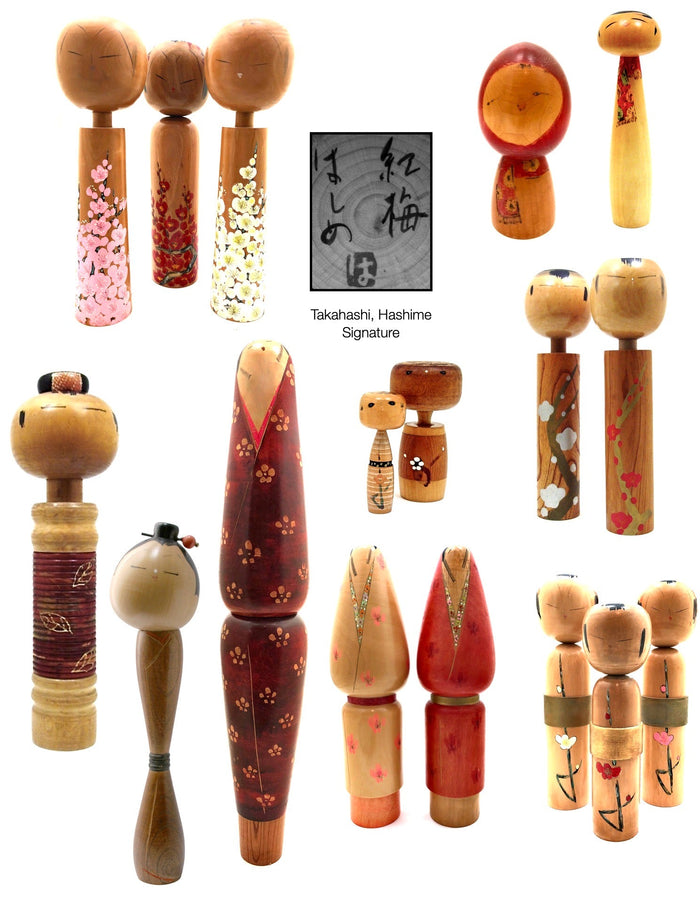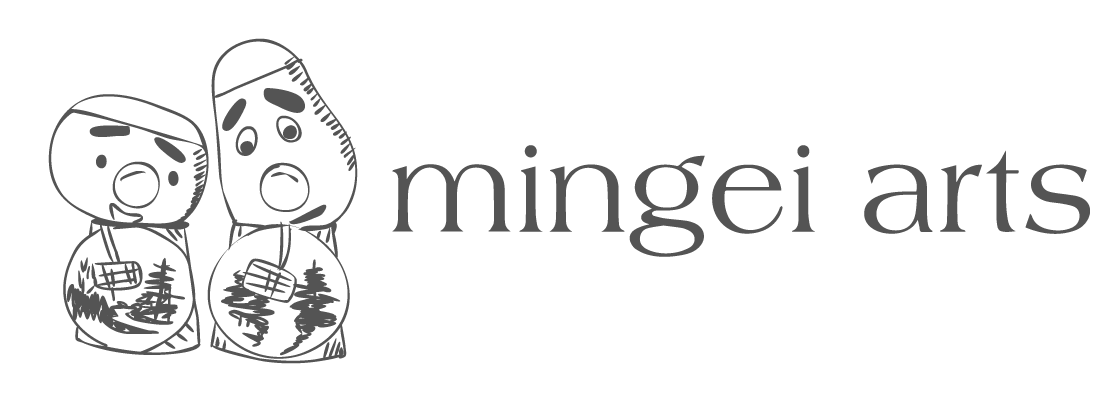
“Umeko | Plum Child” by Takahashi, Hashime
Dimensions: 6-0”h
The motif on this doll represents a very simple but abstract image of ume, (plum flower). The emphasis is on the child’s clothing utilizing “Rokuro Moyo” line work, a simple flower and stem and a black obi. The eyes of the doll are also unusual compared to the typical eye treatment used by this artist. The piece is signed on the bottom.
Vintage Condition: “as is” with some scattered light wear or stain that does not affect the design, and retains the original craft/workmanship. Any discoloration, chipping/cracking, surface wear or structural damage noted.

Artisan
Woodworker: Takahashi, Hashime
1918-2002
Biographical History:
Takahashi Hashime was originally a fine artist/painter. He is known for his colorful designs and the use of brush strokes. Takahashi-san is from Sendai, (where Traditional Kokeshi were born), in Miyagi Prefecture. His artistic background also includes time spent as a craftsman of Yuzen silk kimono dying which is why Kimono is a focus on all of his dolls. He is a multiple award winner in yearly Kokeshi competitions, receiving the Prime Minister’s Award, the highest honor bestowed on Sosaku Kokeshi artists. All of his work is easily recognized producing unique forms and details. Now deceased, his son, Akinori is carrying on the family’s tradition, but in limited production.
Collector's note – descriptive qualities, standard characteristics & ornamentation styles:
The most unusual quality of his dolls is that their heads are treated as a separate element which in many cases are a simple tapered element between the head and the body of the doll. The artist motif‘s range from realistic seasonal flowers such as abstract Plum flowers, (Ume), Cherry blossoms, (Sakura), and Japanese Iris, (Ayame), or celebrating zodiac figures representing one of twelve specific constellations of the zodiac, which over time took on diverse meanings. Takahashi-san has a beautiful pictorial approach to illustrating kimono in a very refined painterly way. He shows both painted and carved Kimono, Obi with exaggerated waists and supportive under and over garments such as scarves and sashes. His use of Rokuro Moyo is occasionally seen in carved and painted forms. Last but not least, are the detailing of faces, all having expressive eyes, small dot noses and wisps of hair. His use of Rokuro Moyo is occasionally seen in both carved and painted forms.
Explore & Learn More about Woodworker: Takahashi, Hashime